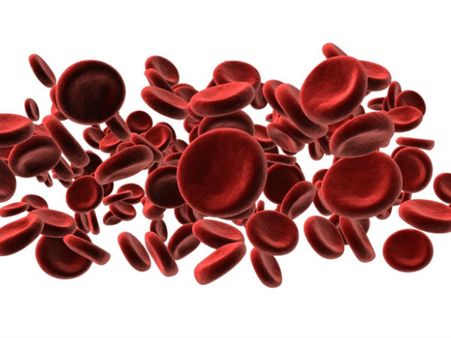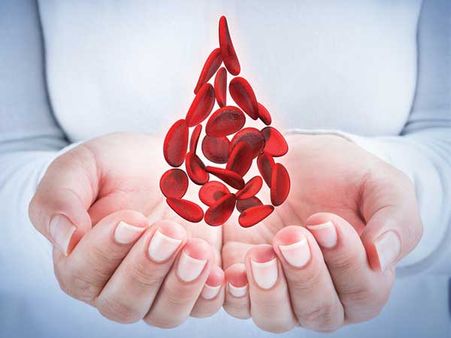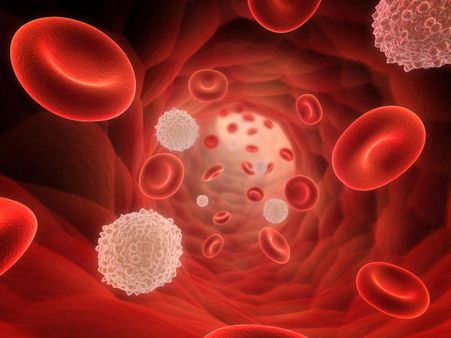Just In
- 7 hrs ago

- 7 hrs ago

- 11 hrs ago

- 17 hrs ago

Don't Miss
- Movies
 Bade Miyan Chote Miyan Box Office Collection Day 10 Prediction: Akshay’s Film To See Hike During 2nd Weekend
Bade Miyan Chote Miyan Box Office Collection Day 10 Prediction: Akshay’s Film To See Hike During 2nd Weekend - Sports
 Most Sixes in IPL 2024: Top 10 Players And Teams To Hit Most Sixes As Of April 20
Most Sixes in IPL 2024: Top 10 Players And Teams To Hit Most Sixes As Of April 20 - Finance
 2:1 Bonus Issue: IT Penny Stock Turned; 1,600 Shares Market Lot Size Revised To 4,800 Shares
2:1 Bonus Issue: IT Penny Stock Turned; 1,600 Shares Market Lot Size Revised To 4,800 Shares - News
 Chinese President Xi Jinping Orders Biggest Military Reorganisation Since 2015
Chinese President Xi Jinping Orders Biggest Military Reorganisation Since 2015 - Education
 Exam Pressure Does Not Exist; Studying Punctually is Crucial; Says Aditi, the PSEB 2024 Topper
Exam Pressure Does Not Exist; Studying Punctually is Crucial; Says Aditi, the PSEB 2024 Topper - Automobiles
 Suzuki Swift Hatchback Scores 4 Star Safety Rating At JNCAP – ADAS, New Engine & More
Suzuki Swift Hatchback Scores 4 Star Safety Rating At JNCAP – ADAS, New Engine & More - Technology
 Dell Introduces AI-Powered Laptops and Mobile Workstations for Enterprises in India
Dell Introduces AI-Powered Laptops and Mobile Workstations for Enterprises in India - Travel
 Journey From Delhi To Ooty: Top Transport Options And Attractions
Journey From Delhi To Ooty: Top Transport Options And Attractions
What Can Nosebleeds Indicate?
The lining of the nose contains several tiny blood vessels. These blood vessels are close to the surface and can get damaged easily. A minor hurt might cause your nose to bleed. However, nose bleeding could also hint at some underlying health issues. Read on to know more about how nose bleeding can be a symptom of various medical health conditions.

Acute Sinusitis
This makes the cavities around your nasal passages, which we otherwise refer to as sinuses, swollen and inflamed. Drainage is restricted and this leads to build up of mucus.
With acute sinusitis, it can get quite difficult to be able to breathe freely. Your eyes and face appear swollen and you could have a throbbing pain on your face as well as head. The primary cause behind this ailment is common cold.
A nasal congestion can make your nose to bleed especially when you blow your nose. Frequent blowing of the nose can cause the tiny blood vessels to break.
The best way to stop this form of a nose bleeding is by gently squeezing the soft portion of your nose using your thumb and finger such that your nostrils are closed. Do this for about 10 minutes. Lean forward and breathe through your mouth.

Rhinitis
Certain allergens may cause hay fever or allergic rhinitis. The most common trigger is pollen. Irrespective of whether it is allergic or non-allergic rhinitis, there tends to be an inflammation in the nasal lining that can lead to nose bleeding.
Many allergists believe that this is especially common during childhood - the primary cause being allergic rhinitis. When allergies are so severe that it damages the respiratory lining, it causes a lot of irritation resulting in the nose to start bleeding.

Nasal And Paranasal Tumours
Frequent nosebleeds along with blood-stained mucous draining from the nose could be a sign of nasal tumour. When there is a nasal or paranasal tumour, then there would be signs of nasal congestion, loss of smell, numbness of the teeth, pain near the eyes, blockage of one side of the nose, and pus from the nose, alongside nose bleeding.
These are some of the common symptoms of this ailment. Other signs include watery eyes, hearing loss, headache, bulging of one eye, trouble in opening the mouth, pain in one of the ears, etc. These need early detection so that the condition can be treated before it worsens.

Nasal Polyps
Non-cancerous, painless, soft growths that are found to occur on the lining of the nasal passages are referred to as nasal polyps. They are caused due to inflammation from asthma, drug sensitivity or allergies. When these growths become quite large, they might start to show symptoms - one of them being nose bleeding.
Medications can help in shrinking and eliminating these nasal polyps. Avoiding nasal irritants and humidifying your home along with practicing good hygiene will ensure that you reduce the chances of developing nasal polyps.

Haemophilia
This is a condition wherein the blood clotting ability is highly reduced. Even a minor cut can lead to severe bleeding. This falls under a category of inherited blood disorder. People who have haemophila can have episodes of nose bleeds. This is usually not something that one should worry about much.
Nose bleeding due to this ailment can be treated at home. When the blood vessels of the nose get damaged (for instance when you blow your nose too hard due to a nasal congestion), it causes bleeding and for a person who has haemophilia, the bleeding might look heavy as there is difficulty and delay in clotting.

Leukaemia
A person who has leukaemia may bleed more than usual, even after a minor cut. Nose bleeding due to minor injuries tend to last long in people who have leukaemia. Such people also get bruised very easily.
Leukaemia interrupts the normal pathway of blood clotting. So, a lesion that might just have caused a minute drop of blood to ooze out under normal conditions would cause your nose to bleed quite noticeably if you are a patient of leukaemia.

Hereditary Haemorrhagic Telangiectasia
This is a rare kind of autosomal dominant genetic disorder. This ailment is associated with the abnormal blood vessel formation. Patients who suffer from this ailment can face situations of profuse nosebleeds.
Recurrent heavy nosebleeds is one noticeable symptom of this illness. Such nose bleeds can occur several times in a day and can last several minutes to hours. A cancer-treating drug known as bevacizumab has been found effective in treating this condition.


Idiopathic Thrombocytopenic Purpura
This
is
a
disorder
that
can
lead
to
bleeding
and
bruising
quite
easily.
Low
levels
of
platelets
(cells
that
aid
in
blood
clotting)
are
the
reason
behind
the
excessive
bleeding.
This
disorder
is
also
known
as
immune
thrombocytopenia.
Nose
bleeding
and
bleeding
gums
is
quite
common
in
people
with
this
disorder.
-
 healthWhy Your Eyes Water When You Blow Your Nose
healthWhy Your Eyes Water When You Blow Your Nose -
 healthDo You Pick Your Nose? Stop! It Can Increase COVID Risk
healthDo You Pick Your Nose? Stop! It Can Increase COVID Risk -
 wellnessNose Picking May Increase Alzheimer's And Dementia Risk; Tips To Stop Nose Picking
wellnessNose Picking May Increase Alzheimer's And Dementia Risk; Tips To Stop Nose Picking -
 disorders cureNY Man Treated For Rhinophyma Or Bulbous Nose: Causes, Symptoms And Treatment Of The Condition
disorders cureNY Man Treated For Rhinophyma Or Bulbous Nose: Causes, Symptoms And Treatment Of The Condition -
 wellnessWhat Are The 7 Types Of Hunger And How To Deal With Them?
wellnessWhat Are The 7 Types Of Hunger And How To Deal With Them? -
 make up tipsHow To Contour Nose: Step-By-Step Tutorial For Beginners
make up tipsHow To Contour Nose: Step-By-Step Tutorial For Beginners -
 disorders cureYou May Be Surprised By What Your Nose Can Reveal About Your Health
disorders cureYou May Be Surprised By What Your Nose Can Reveal About Your Health -
 make up tipsHow To Use Make-up To Fake A Nose Job
make up tipsHow To Use Make-up To Fake A Nose Job -
 disorders cureEverything You Need To Know About Septoplasty
disorders cureEverything You Need To Know About Septoplasty -
 disorders cureHyposmia: Causes, Diagnosis And Treatment
disorders cureHyposmia: Causes, Diagnosis And Treatment -
 disorders cureDeviated Nasal Septum: Symptoms, Causes And Treatment
disorders cureDeviated Nasal Septum: Symptoms, Causes And Treatment -
 wellness15 Interesting and Fun Facts About Your Nose That Will Blow Your Mind!
wellness15 Interesting and Fun Facts About Your Nose That Will Blow Your Mind!


 Click it and Unblock the Notifications
Click it and Unblock the Notifications



